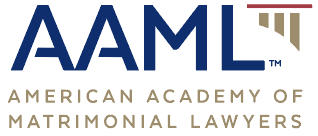
Money is the lifeblood of a business. Businesses not only need to cover their own costs, they also are intended to generate a profit for their owners, members, shareholders, or for the benefit of another project or entity.
When you sell a product or service to another individual or business, you expect to be paid. When payment is not made promptly, you may spend considerable time, money, and effort attempting to collect what you are owed. When a customer disputes the amount owed, the process can become even more complex. Time passes while your business’s cash flow suffers.
Does a person or business owe you money? Are their promises to pay made but not kept? Do they say the check is in the mail but it never arrives? Are phone calls not answered and letters ignored? You have done all you can do to get paid, but you still cannot get what you are owed.
If you’re facing a money dispute and need help collecting on a debt, the Eastern North Carolina business dispute attorneys at The Anderson Law Firm, P.A. are here to be Strong for You until you receive what you are due.
How Do I Collect on a Debt?
Time is of the essence when you are trying to collect on a debt. Not only does your business suffer while you wait for payment, but state and federal laws also set time limits that prevent you from collecting on a debt after a certain number of months or years have passed. Also, the quicker you move, the more likely it is that you will be able to obtain what you are owed before the debtor promises it to someone else.
If you are attempting to collect on a debt, make sure you understand the rules laid out in the federal Fair Debt Collection Practices Act (FDCPA), as well as any applicable state laws. While some parts of the FDCPA apply only to debt collectors, others apply both to debt collectors and to creditors.
Failing to follow the rules for creditors can result in fines, lost attempts to collect debts, or other penalties. Your attorney can help you ensure that you understand these rules and that your debt collection practices follow them.
Wage Garnishment and Liens
In some business dispute cases, the money you are trying to collect isn’t a debt for goods delivered or services rendered. Instead, it is part of a legal judgment that a court has ordered another party to pay, but that party has not followed through.
While a legal judgment in your favor can feel vindicating, it does very little good unless you can also collect the damages that are owed you. An attorney can help you ensure that you collect on the judgment. Options like wage garnishment or a lien go after the debtor’s assets or wages directly, ensuring that you receive what you are owed before the debtor can spend their money in other ways.
Wage garnishment and liens are two powerful options for receiving what you are owed, but they are available only after you have gotten a judgment in your favor from a court. If you have tried to collect on a debt to no avail, your attorney can help you secure the court judgment necessary to exercise these powerful tools.
Alternative Dispute Resolution and Debt Collection
Not all situations are appropriate for court. Alternative dispute resolution (ADR) encompasses a range of methods for settling a legal or business dispute – including a dispute over money owed – without going to court. Mediation and arbitration are common ADR methods that might be used in collections and money disputes.
In mediation, the parties work with their respective attorneys and a neutral third-party mediator in an attempt to resolve their dispute. Generally speaking, the mediator can help the parties consider various perspectives and guide them toward a common ground, but the mediator cannot make a decision for the parties. If mediation fails, the parties are typically free to try another dispute resolution method like arbitration or to go to trial, unless the terms of their contract specify otherwise.
In arbitration, the parties and their respective attorneys appear before a neutral arbitrator to make their cases. The arbitrator then considers all the evidence and makes a decision. In a binding arbitration, the parties must follow the arbitrator’s decision. In this way, arbitration looks more like a typical court case than like mediation. However, arbitration still operates as an alternative to a trial. Arbitration is generally less formal, and the time and effort required to choose an appropriate jury is avoided. Instead, your attorney may be able to recommend or even choose a qualified and appropriate arbitrator.
A business owner may choose ADR for any number of reasons. The expense and time involved in a full trial can be daunting for some business owners. Others may prefer as a matter of personal or professional ethics to attempt amicable dispute resolution before agreeing to the more adversarial trial process. Your attorney can help you understand your alternative dispute resolution options when attempting to collect a debt and choose the path that helps you reach your goals.
Get Help from an Attorney Who Will Be Strong for You
Collecting on a debt takes patience and perseverance. More than anything, it takes strength. If you’ve pushed to collect the money owed to you or your business, but to no avail, it’s time to choose a business dispute attorney who can be Strong for You.
At The Armstrong Law Firm, P.A., our attorneys understand business disputes. We know the tactics debtors use to avoid paying the people they owe, and we’re quick to respond in ways that encourage prompt and full payment. When needed, we will fight for you in mediation, arbitration, or in the courtroom to secure a judgment and make sure you receive what you are due.
Contact us now so we can review your situation and advise you about your legal options for recovering the debt you are owed.


 Money is the lifeblood of a business. Businesses not only need to cover their own costs, they also are intended to generate a profit for their owners, members, shareholders, or for the benefit of another project or entity.
Money is the lifeblood of a business. Businesses not only need to cover their own costs, they also are intended to generate a profit for their owners, members, shareholders, or for the benefit of another project or entity.








